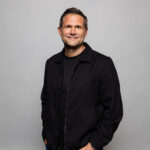We are marrying later, living longer, and more educated than we ever have been in the history of humanity. This is great and all for the advancement of humankind, but real talk: waiting sometimes decades longer for sex than we thought we’d wait is a STRUGGLE. It’s one thing to be 15 years old and commit to abstinence until marriage.
So what happens when we’re 25, 30, 35, 40…and still single—Still longing for marriage, intimacy, connection, and let’s just say it: sex?
What do we do with our sexuality and desire as single people?
First things first: we have to give each other the permission to talk about it. Normalizing healthy dialogues around sex and desire and removing the stigma and taboo and capital ‘A’ awkwardness that can come with such topics, especially in the church, is so important.
Next, be curious about the sexual scripts you were given both from culture and the church. What do you believe about your sexuality and desire? Where did those messages come from? Are they rooted in fear and shame, or love, hope and freedom? Remember the invitation of Jesus is not one of fear, but of power, love and a sound mind.
We live in a culture that says if it itches, scratch it. And don’t we all kinda want what we want when we want it, and we want it piping hot—like yesterday? Jesus help us if our takeout is late, or worse if our delivery is wrong! Underneath this pursuit of instant gratification, there’s a core message: I am the sum of my desire.
And in the wakes of a loud, albeit highly damaging shame and rule based purity culture, leaders seem pretty quiet about the whole sex thing. Often the message is to shut down your sexual desire until that one allusive day when a ring slides on your finger. Then, in an instant a flip is switched and voila…it’s on!
In efforts to promote abstinence, unfortunately many of the messages we receive from the church are one-dimensional. The reality is we are not light switches that turn off and on, we’re humans.
And ironically, in trying not to make sex and desire a thing, they’ve made it the thing. I mean if someone tells you not to think of a purple hippo—what are you going to think about? A purple hippo; it’s the oldest trick in the books.
So, culture says: I am my desire.
The church says: shut down your desire.
But what does Jesus have to say?
We see scandalous and provocative accounts of Jesus engaging with women, children, and those most ostracized in society. Jesus was unafraid to challenge societal and religious norms to establish his grace and kindness to a world longing for restoration. Throughout the Sermon on the Mount Jesus repeatedly said, you may have heard it said…but I say to you. In essence Jesus was saying culture may do it one way, the church another, but I have a different way for you.
So what is the way of Jesus when it comes to sexuality and desire?
In the Genesis creation account we see this rhythm of God speaking life into existence and calling it good. But then we get to the climax of creation when God creates humanity in His image and likeness. Distinct from all else in Creation, humans are made to be a reflection of God. The phrase for this concept is imago dei. Continuing the distinction of humanity God then says humanity isn’t just good, but very good.
The text doesn’t say our spiritual life is good, and the body sinful. Nor does the Scripture say your mind is good, but your foot is bad. The text simply says humans are made to reflect the image of God and that we are very good. This means God created humans with a holistic vision as opposed to compartmentally.
In fact, this means that our sexuality and desire are good and God designed. There’s even something about our sexuality and desire that reflect the God image and God’s goodness.
The Jesus way is one that says God created humans holistically in his image and likeness and in light of that, we are very good. Our sexuality and desire is an integral part of what it means to be human, but it is not the main thing. We aren’t our desire, nor the absence of it. We are God reflectors.
The entire conversation surrounding desire and sexuality shifts completely when we challenge the starting point of what it means to be human.
We are not our desire.
Nor the compartmentalized absence of it.
We are imago dei.
That is who we are.
This means that there has to be ways to connect to our sexuality and desire in ways that are holistic, God honoring, and shame free.
Can we stop and acknowledge this is really good news for single people? We don’t have to compartmentalize our sexual desire for one day when, but can find holy integrated ways to stay connected to this integral part of what it means to be human while remaining true to our values and a biblical vision for sex.
With you on the journey,
Kat Harris
From Bible major to editorial photographer to educator to host of The Refined Collective Podcast, and now author, Kat Harris never shied away from doing things her way. Through her online platform, The Refined Woman, her vision is to be a voice of truth and hope while equipping women to walk in wholeness, worthiness, and freedom. She fiercely loves her big Texas family, and is indebted to her faithful community scattered all over the world. She believes in the power of story, and that every opportunity is an opportunity for growth if we choose it to be. She currently lives in Austin, Texas.



















0 Comments